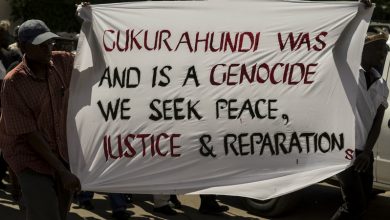BAZ must promote ownership diversity in new TV stations: MISA

The Media Institute of Southern Africa (MISA-Zimbabwe) has urged the Broadcasting Authority of Zimbabwe (BAZ) to promote diversity and pluralism in awarding licences for new private television stations.
BAZ recently shortlisted applicants for interviews for private television stations, which MISA-Zimbabwe says is a welcome development.
But the media rights lobby has expressed concern on whether diversity in ownership would be seen, as there has been a trend of licensing the same players at both national and provincial commercial levels.
Zimbabwe has gone for 40 years since independence in 1980 with only one television station owned by the Zimbabwe Broadcasting Corporation (ZBC).
In February, the BAZ called for applications for six television licence applications, 10 community radio station licences and 19 campus radio licences.
14 candidates were then shortlisted for the television applications interview process.
The shortlisted are AB Communications, Acacia Media Group, Black Berry Zimbabwe, Channel Dzimbahwe, Conduit Investments, Continental TV, Fairtalk Communications, Heart and Soul, Jester Media Services, Just In Time TV, Media Net Productions, Meditation Investment, Rusununguko Media and Zimbabwe Newspapers.
Only six licences would be awarded licenses after the interview processes.
In a statement, MISA-Zimbabwe said there was a need to uphold Section 61 of the Constitution, where the government must commit to media reforms and open up the broadcasting sector to more players.
“The pending interview processes should thus be premised on making sure there is diversity and pluralism in the broadcasting sector as opposed to perpetuating monopoly through ownership by the same players,” said the media watchdog.
“There is, therefore, need for due regard and attention to Section 61 of the Constitution which states that broadcasting and other electronic media of communication have freedom of establishment.”
MISA-Zimbabwe said while it is almost certain that after the interview processes for the television licences, ZBC’s monopoly will be broken, the watchdog hoped that the emerging TV broadcasting sector would be epitomised by diversity in its ownership.
“Currently, the reality is that the broadcasting sector remains in the hands of a few players and lacking in variety and multiplicity of voices. To promote diversity and encourage new players into the sector, MISA-Zimbabwe urges the government to seize this opportunity and demonstrate its sincerity in liberalising the broadcasting sector by making sure diversity in ownership.
“This will go a long way in strengthening competition and improving the quality of programming, diversity and pluralism in content generation,” said the watchdog.
MISA-Zimbabwe said this freedom of establishment, should among others, be subject to State licensing procedures that are independent of control by government or by political or commercial interests.
The watchdog also decried that exorbitant licensing fees were pushing out small players.
“MISA-Zimbabwe notes without any bias or prejudice, that a number of the shortlisted applicants already have radio licences while some of the proprietors have links with either the government or the ruling Zanu PF. We, therefore, note with grave concern that there has been a trend of licensing the same players at both national and provincial commercial levels,” said the watchdog.
The shortlisting, according to MISA-Zimbabwe further confirms why the government through the Broadcasting Services Amendment Bill limits foreign direct investment to 20 percent.
“Given the capital-intensive nature of the industry and the exorbitant licensing fees, the elite with their deep pockets will most likely continue dominating the industry.
“It is MISA Zimbabwe’s well-considered view that it is literally impossible, in our current economic environment, to raise investment capital for broadcasting without stimulus support from the investment markets,” MISA-Zimbabwe said.






